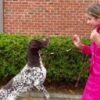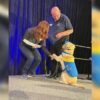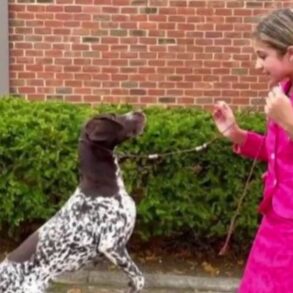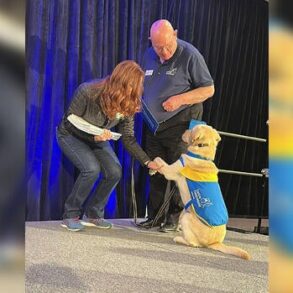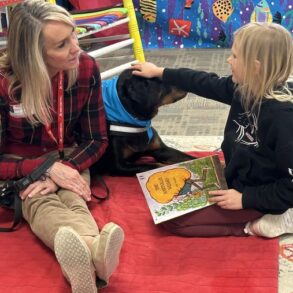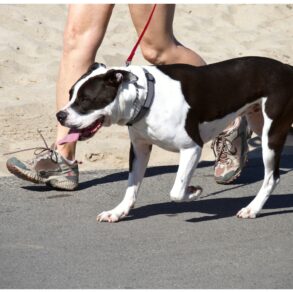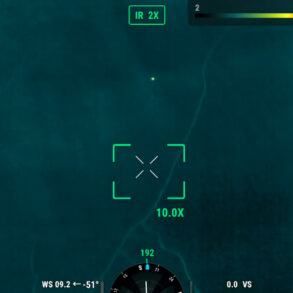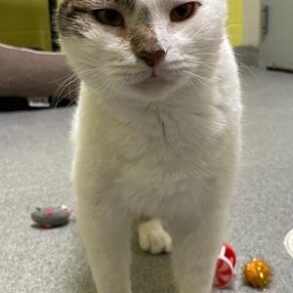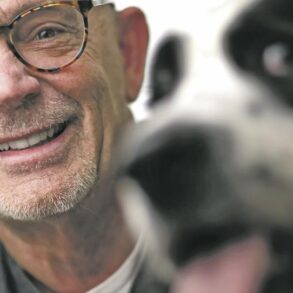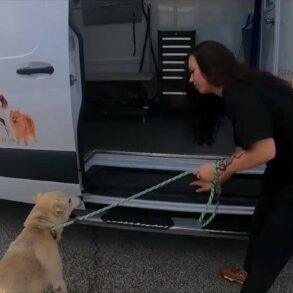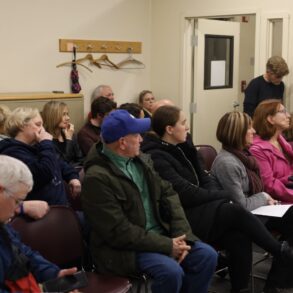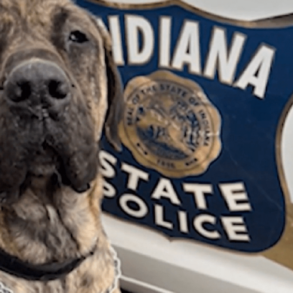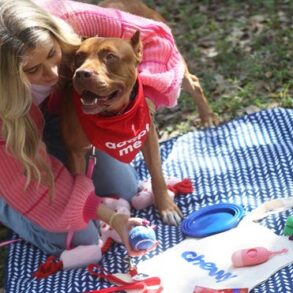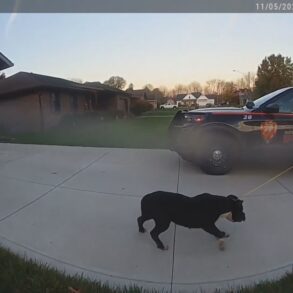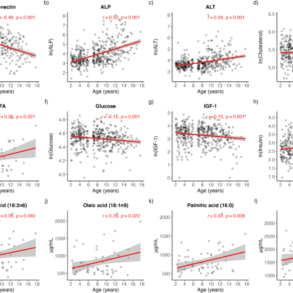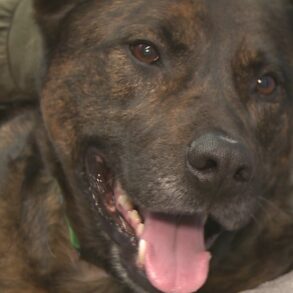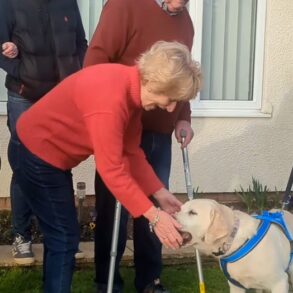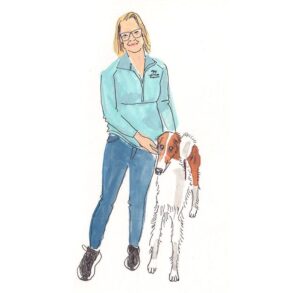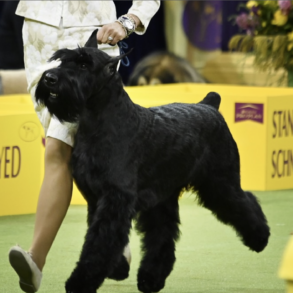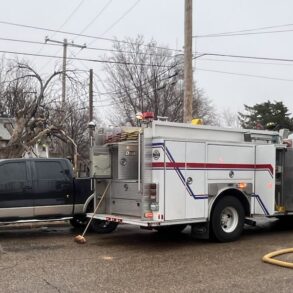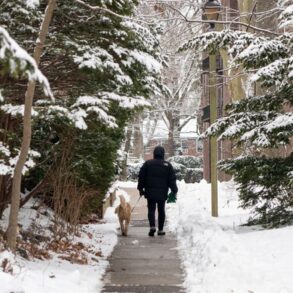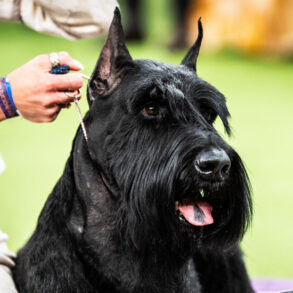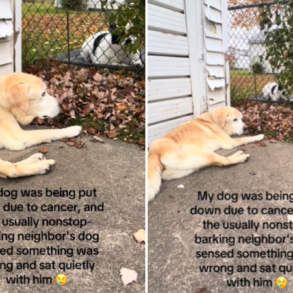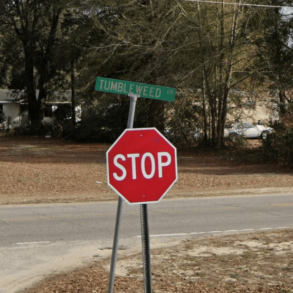I’ve had my rescue dog for a little over 18 months, and it’s certainly been a rollercoaster ride with its ups and downs. She’s a nervous dog, so building her trust and confidence has been key to developing a good relationship.
However, Dixie sometimes fails to recall promptly, and this developed into a full-blown bolting issue over the festive period, where she ran off every time she was let off the leash.
Eventually, I concluded that we needed to completely restart recall training as though she were a puppy…
How I improved my dog’s recall
1. Find a reward
“Find something your dog loves, like high-value food or a certain toy [they go] mad for. […] Reward the recall every time the dog comes when called,” advises Adam Daines, a dog trainer and owner of Avon Dog Services.
Dixie isn’t a very food-motivated dog, which means that I had to search for a long time to find something that she likes enough to hold her focus. Slices of dried sausages or small pieces of cheese seem to be the only thing that she deems worth the effort of coming back for.
So, armed with a pocket full of sausages, I started practicing recall around the house, which she had no problems with. It wasn’t that she had forgotten her name, but the association seemed to have broken in her mind in the context of the outdoors. I didn’t realize, but the panic in my voice when trying to recall her on one of her flights of fancy might have been causing problems.
2. Try a new recall word
Adam says: “The word you’ve previously used may have been ‘poisoned’, whereby you’ve made a negative connection to the recall, such as yelling at the dog to come back to you in a harsh manner time and time again. In which case, it’s probably best to start with a brand new recall word – one which starts to elicit a positive response from the dog.”
We’ve never had one recall word in particular: when I want Dixie to come to me, I whistle, click my tongue, call her name, or sometimes shout, “What’s this?” I realize now that this too might have been confusing for her, as it was lots of commands being used with the expectation of a single result. So I settled on the word “here,” which we’ve not used before. Then, it was time to try outside again.
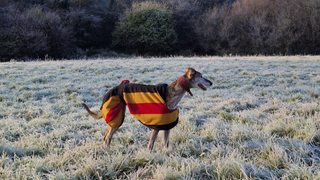
3. Use a long line
“My advice when re-establishing a recall is to use a long line in the early stages,” advises Daines. “My go-to is a 10-meter line. This gives the dog enough freedom to roam but still maintains safety and control when needed.”
I had a long line to hand, so out we went. I kept Dixie on the line for a week, calling her back to me regularly on her walks until I felt confident that she could handle some off-leash time.
We started small, in a secure and familiar place with few distractions, as I wanted to set Dixie up for success. “The locations you walk may impact your dog’s recall,” explains canine behaviorist Caroline Wilkinson, “They might respond perfectly in a quiet field, but take them into a wood filled with the smells of squirrels or deer and their natural instincts might take over, tuning your recall requests out.”
4. Build confidence off-leash
I allowed her off-leash initially for five minutes at a time, recalling several times in that space of time. After we had small pockets of off-leash time firmly established with no incident, I let her off for longer periods, with regular (but less frequent) recall and reward.
One thing I’ve always done with Dixie is reward her when she checks in: I may not have called her back to me, but if she has come to say hello or nudged me, I automatically reward her.
Wilkinson confirms that this is a smart move: “Give your dog praise and rewards for any little moments of connection they offer – if they look up towards you on a walk or loop back close to you after a period of walking ahead,” she says.
We now walk for longer periods off-leash, although I’m always aware of potential distractions that might pull Dixie’s focus away from me or cause her to bolt.
Why do dogs lose their recall?
I was curious about why recall training is sometimes forgotten by our dogs, and asked Wilkinson to explain what may be happening to cause this regression in training.
“Your dog’s age can impact their recall. As a puppy, they may be more likely to stick by you for support while learning to be confident in the outside world. As an adolescent fueled by hormones, they can become more confident and start to realize how rewarding the world can be to explore, meaning they’re less likely to listen to their humans.
“Later in life, you may have eased up on training and rewarding recall regularly, as your dog was doing so well so didn’t see the need to continue. [As a result], your dog might start to find it more rewarding to go chase squirrels or sniff out lovely smells.
“As a senior dog, they may lose some of the senses – unable to hear or see you as well, they might be more inclined to go off. Dogs in season – or males around bitches in season – can sometimes lose focus on their human as their natural desire to breed kicks in.”
Wilkinson also explained to me that Dixie’s emotional state may have caused her recall to lapse, which made sense to me as she had a couple of scary experiences in the fall.
“Stressed dogs find it hard to learn new skills and will be unlikely to be able to respond to treats as a reward,” she says. “They may be looking for a way to flee an uncomfortable situation, causing them to run off.”
Looking for more training tips? Read about positive reinforcement for dogs and reasons why your dog’s recall isn’t reliable.




Daines is a full UK member of the Association of Pet Dog Trainers, member of the UK Behaviour & Training Charter and a Victoria Stilwell Positively Dog Trainer, Faculty Member and Faculty Advisor.
Daines’ work focuses on wanted and unwanted behaviour rather than good or bad behaviour, and tailors training sessions around each of client’s needs.




Caroline Wilkinson is a Certified Animal Behaviorist. She is a Full (assessed) Member of the APDT and INTODogs – as well as a Registered Training Instructor (ABTC). Caroline is also a Certified Real Dog Yoga Practitioner and an Applied Canine Zoopharmacognosist.
Edited by Megan Milstead.
This post was originally published on this site be sure to check out more of their content.

